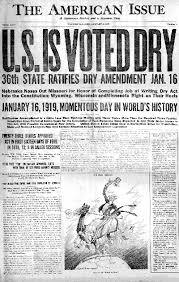The performance of some of the riders in this year’s Tour de France means it’s time once again for the discussion of performance-enhancing drugs.
In stage 10 on July 14th, last year’s winner, Vincenzo Nibali, lost a great deal of time on the type of mountain stage he dominated last year. “I’m not the same Vincenzo Nibali as last year,” he himself admitted. His team, Astana, have not helped the situation. Cycling’s governing body, the UCI, considered revoking Astana’s racing license after five riders (but not Nibali) were caught doping. Their manager, Alexander Vinokourov, was suspended during his cycling career for improper blood transfusions. Clearly, this raises the question of whether Nibali won last year’s Tour “cleanly.” It would be hardly surprising if we learned that Nibali is avoiding whatever he took last year because of the increased scrutiny of his team. [Update: while I sit writing this, news just broke that Vinokourov has told Nibali to look for a new team next year because of his disappointing performance. Is that the aroma of hypocrisy?]
This year’s current leader, Chris Froome, who is climbing like Nibali did last year, uses an inhaler to treat asthma during races. We all know that there is no possibility he would ever use this to gain an advantage over his opponents when it wasn’t medically necessary. (That level of sarcasm causes physical pain.) Indeed, most everyone remembers the recent high-profile disqualifications of Alberto Contador, Floyd Landis, Lance Armstrong, and the entire Festina team in 1998. Top riders’ use of substances to perform better is inextricably linked to the history of the sport: Pedro Delgado in the ’80s, Eddy Merckx in the ’70s, Tom Simpson in the ’60s, Charly Gaul in the ’50s, Fausto Coppi in the ’40s, and the Pelissier brothers in the ’20s. (That’s a fascinating story. Read about it here.) In fact, I’m surprised when anyone acts surprised each time a new case rears its head.
Baseball has also faced its share of performance-enhancing drug scandals. Steroid use has tainted the achievements of Alex Rodriguez, Manny Ramirez, Barry Bonds, and Mark McGwire, to name a few. In addition, amphetamine use has historically been common in order to help players gain an energy boost to deal with a long, hot season. This was responsible for the widespread cocaine use among major leaguers in the ’70s and ’80s. (Interestingly, Luca Paolini exited this year’s Tour de France after he tested positive for cocaine. Everything old is new again?)
It seems that we all love to see “cheaters” get what’s coming to them. Fans applaud when Major League Baseball puts an asterisk next to Barry Bonds’ career and single-season home run records. Fans hold up signs saying that Babe Ruth set his records while consuming nothing more than beer and hot dogs, forgetting (or never knowing because they fell asleep in U. S. History class) that beer was ILLEGAL for most of Ruth’s career.
Fans hope Lance Armstrong loses his sponsorship after winning seven tainted Tours de France. Fans hope Alex Rodriguez never makes the Hall of Fame.
Did you catch what was the same in all of those instances? These sentiments come from fans of sport. Who has not, at one time or another, dreamed of PLAYING a sport for a living? Who does not like to imagine that what our sporting heroes do in the competitive arena is not really that different from what we do, and we all could have been there except for my broken collarbone in 1990 or my parents’ lack of support for anything competitive in my youth? (Wow. My therapist would have a field day with that one.) The unethical things athletes do in order to excel spoil this fantasy for us.
Almost everyone forgets that competing at a sport is a professional athlete’s job. It’s how he pays the bills, feeds the family, and keeps up on the mortgage payments. I’ll bet that when a pro athlete talks about his job over dinner at home, it sounds remarkably similar to when we do it: “I can’t believe my boss [coach]. Do you know what he made me do? File all of the paperwork while his secretary was on vacation [bunt to move the runner over/carry water bottles for the other riders]! Why doesn’t he appreciate me?”
“But wait,” you say, “they make so much more money than I do that it’s not the same thing!” Oh, but it is. Why did you file the paperwork when you did not want to? Because you knew that there was a job seeker out there who would willingly do the filing, and for less money than you make. So, clearly, a person who is trying to preserve his job from the intense competition out there will do whatever it takes to keep an edge. Fausto Coppi hit the nail on the head when he stated (in 1949) that a cyclist had to take amphetamines to remain competitive. If the taking of performance-enhancing drugs is rampant, an athlete must do so, just to level the playing field. Regardless of their rate of compensation, if an athlete does not perform, he will be replaced, just like you (or Nibali).
Still not convinced? In essence, what is a professional athlete? First, he is an entertainer. He only makes more money than you do because you pay to see him do his job. If he doesn’t do what you want to see (go fast, hit far, break records), you’ll stop paying, and he’ll be replaced by someone who does what you want, even with the help of performance-enhancing drugs. Second, he is an advertiser. Companies pay athletes good money to wear logos and endorse products.
(My favorite cycling endorsement this year is a caffeinated shampoo!)
Will you still be willing to buy the product if the athlete flies out all the time, or finishes at the back of the peloton? No. The sponsors want athletes to do well, regardless of what it takes. It seems the only ones who care about “pure competition,” who are upholding some mythical standard of sports performance, are the customers, and they are the reason athletes “cheat.”
What if we had these expectations for other professionals in our lives? Be honest. Would you ever say: “Well, the vegetables got to my supermarket in time for my week’s grocery shopping, but that’s tainted by the fact that the tractor trailer driver broke speed limits to get here. I won’t buy them?”
You want the vegetables.
Would you ever say: “My realtor found me my dream house, and she got in touch with me so quickly that I beat out all of the other bidders, but she should not have used her mobile phone while driving. I’ll pass on the house?”
You’ll take the house.
Would you ever say: “That actress only looks good because she took an illegal and dangerous weight-loss drug. I’m boycotting her movie and pin-up pictures?”
You’ll do whatever it is you do while watching that movie and looking at those pictures.
Would you ever say: “I’m going to give back all of the money my stock broker made me, because he used some inside information when conducting my trades?”
You’ll open a Swiss bank account.
So, am I saying that it’s all right that athletes cheat? No way. I hate when anybody breaks rules, including the truck driver, realtor, actress, and stock broker.
I just want you to remember that when professional athletes dope, It’s our fault.




